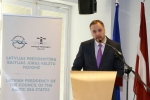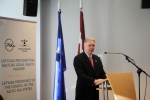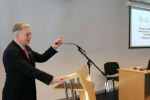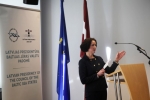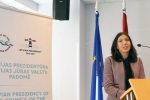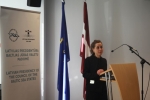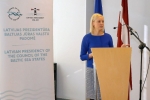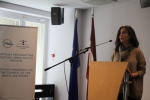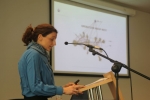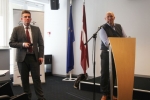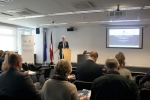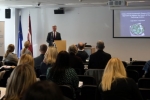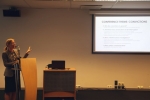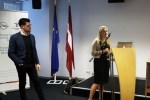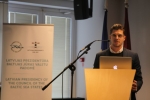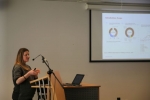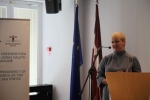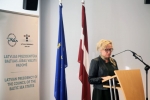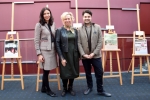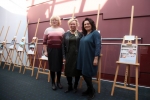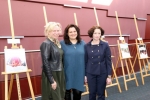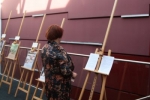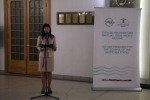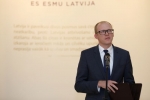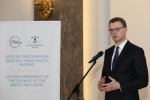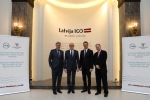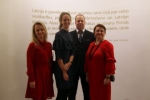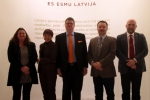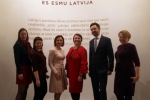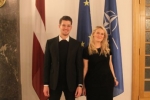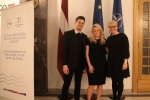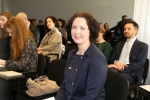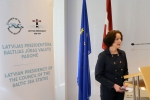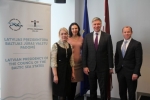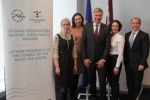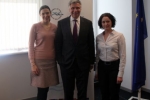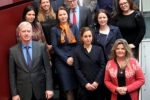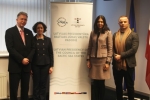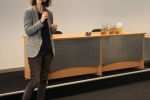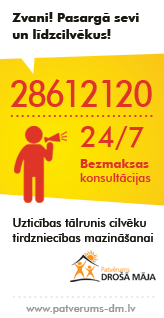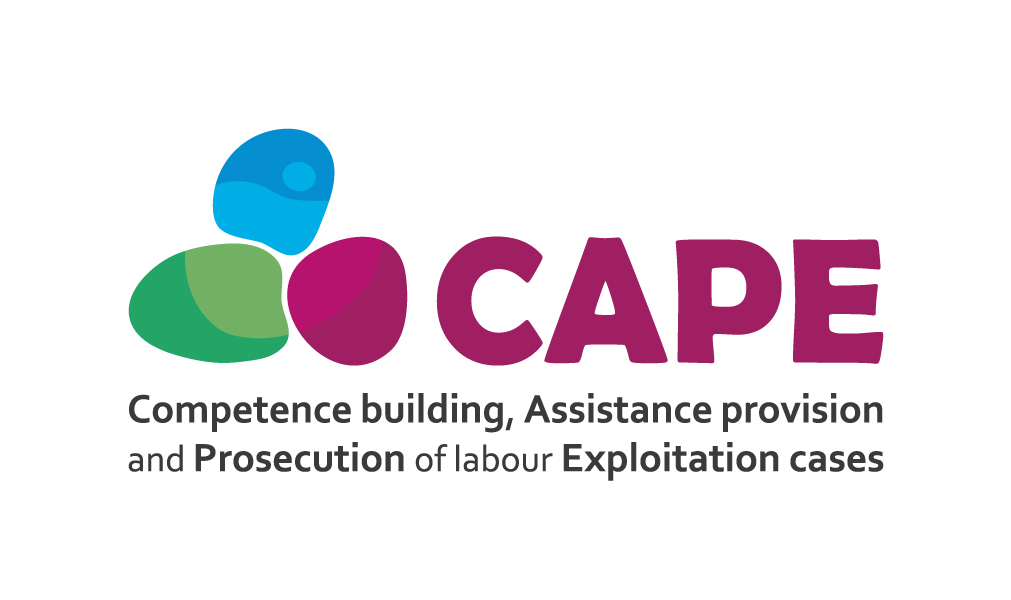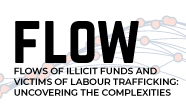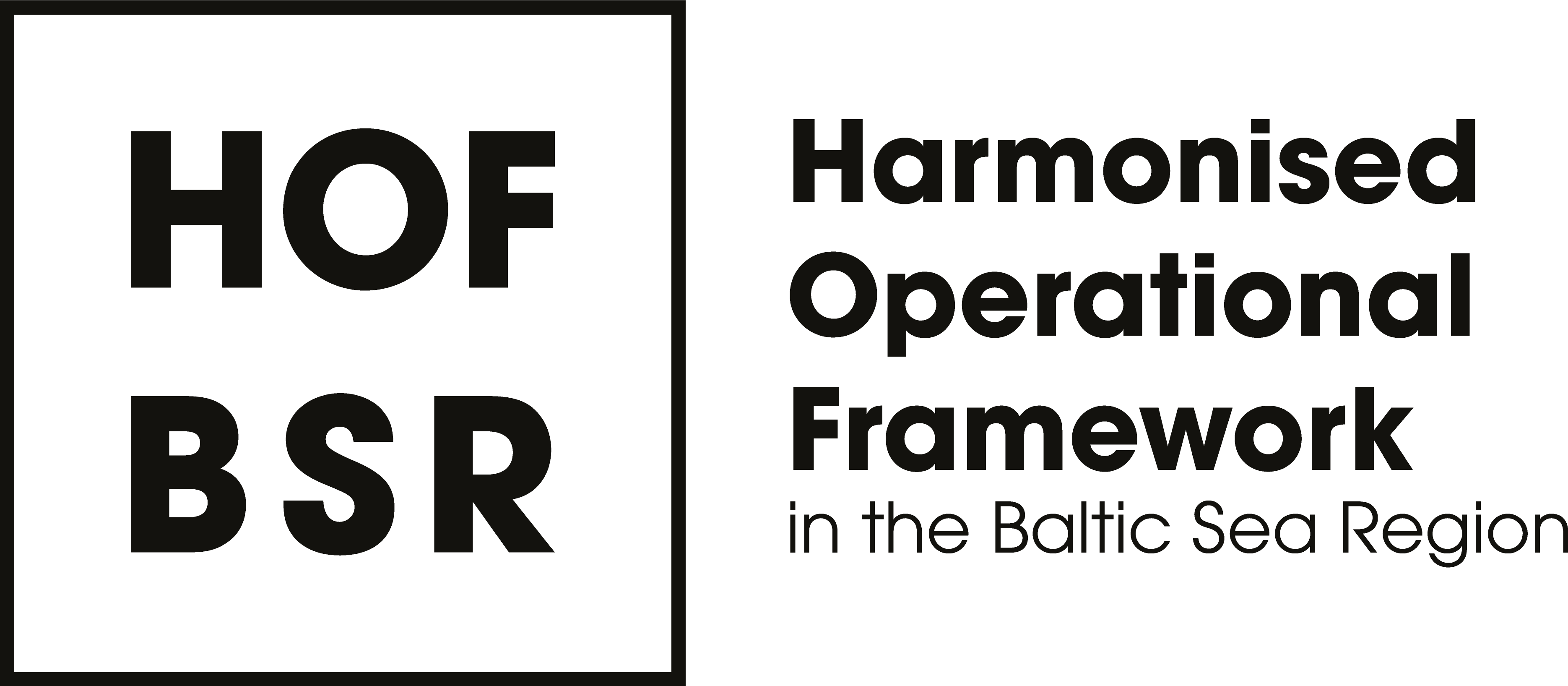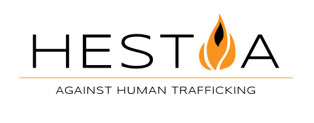“Efficient prosecution and provision of victims’ rights is very topical issue to deal with in all Member States of the Baltic Sea Region, because so many victims of human trafficking are identified and many criminal investigations are initiated while so few criminal cases reach courts and are adjudicated” noted Ms Lasma Stabina, National Anti-Trafficking Coordinator of Latvia, explaining why exactly this topic was chosen as the priority to be elaborated during the Latvian Presidency in the Council of the Baltic Sea States.
The conference focused on prosecution of human trafficking cases and victim’s rights in legal proceedings. The conference at the Ministry of the Interior of Latvia gathered more than 80 participants from the CBSS Member States and Observer States during which policy makers, researchers, practitioners – investigators, prosecutors and judges were discussing experience and best practises of combating trafficking in human beings from the United States of America, the United Kingdom, Norway, Latvia, Sweden, Denmark, Belgium and the European Commission.
The overall aim of this event was to promote the importance of inclusive partnerships to enhance anti-trafficking efforts in the Baltic Sea Region and strengthen cooperation and coordination among relevant actors as well as to discuss ways of improving prosecution efforts.
With representatives of all 11 Member States of the Council of the Baltic Sea States and 11 countries with Observer Status, as well as academics and researchers in attendance, the conference served as a cooperation platform for exchanging good practices and knowledge as well as for providing nexus between research and practical implementation of anti-trafficking legislation.
“Trafficking in human beings is the slavery of our times and one of the most profitable criminal businesses in the world. It is a severe violation of individual freedom and dignity and a serious form of crime that often has implications which individual countries cannot effectively address on their own. Therefore it is very essential to achieve a single understanding of the human trafficking problem, strengthen our cooperation and joint anti-trafficking efforts at national and international level to reduce trafficking in human beings and provide adequate assistance and protection considering the best interests and needs of victim” highlighted Mr Sandis Ģirģens, Minister of the Interior of Latvia at the opening of the international cooperation “Human Trafficking – a crime with too few convictions and too many victims”.
Mr Bernd Hemingway, Deputy Director General of the Permanent Secretariat of the Council of the Baltic Sea States (CBSS) in his opening speech pointed out that “the nature of the trafficking in human beings crime without any doubt presents difficulties for investigations and prosecutions. But in our attempts to put perpetrators behind the bars, we should never forget that the central issue here is to protect victims and ensure their rights. Prosecution and protection always need to be balanced and go hand in hand. Victims are expected to provide a reliable and clear testimony, often to repeat many times to different authorities, but we should keep in mind that is very difficult for a highly traumatised person to open up and tell their deepest secrets to complete strangers. Without support and assistance victims might not be able to help law enforcement to do their job – to prosecute perpetrators”.
Ms Valeria Galanti from the Office of the EU Anti-Trafficking Coordinator in her presentation “Countering the culture of impunity to address trafficking in human beings – EU priorities in anti-trafficking action” highlighted that trafficking in human beings remains a highly profitable form of serious and organised crime, explicitly prohibited in the EU Charter of Fundamental Rights. It results in irreversible harm to its victims, our societies and economies. The EU has put in place a robust legal and policy framework to eradicate trafficking in human beings and counter impunity for its perpetrators. On 4 December 2018 the Commission published the Second report on the progress made in the fight against trafficking in human beings, which examines progress made and highlights key challenges that the EU and its Member States need to address as a priority.
Ms Rūta Rācene-Bērtule, Head of Strategic Analysis Division, the Office for Prevention of Laundering of Proceeds Derived from Criminal Activity (FIU Latvia) in her presentation “Trafficking in Human Beings and Money Laundering” highlighted that trafficking in human beings has high level of undetected crime and undetected financial flows. The financial flows can differ significantly from one case to another. It is impossible to determine one indicator to detect human trafficking, usually a set of indicators is needed – no typical money thresholds or red flags, cross-border element, and where a victim has no interaction with registered businesses it can be much harder to identify the signs of trafficking. There is incomplete cooperation and coordination, and information sharing between competent institutions. Awareness raising and training for relevant officials is needed.
Panel on prosecution: Trafficking in human beings is a severe crime violating the human rights of victims exploited for sexual, labour and other purposes. Women, children and newly arrived irregular migrants are especially vulnerable to trafficking. Countries have an obligation to identify victims, and to investigate and punish perpetrators. Measures must be adopted to provide effective and appropriate protection for victims and witnesses during and after investigation and prosecution of traffickers. In the Baltic Sea Region, the number of convictions remains low, and does not correspond well to the number of identified victims. Prosecuting human trafficking cases presents many challenges. States must seek to ensure that prosecutions are not dependent upon the report or accusation made by a victim. In practice, testimony from victims frequently remains the most vital evidence during a trial.
Mr Carl Chetwyn and Mr Richard Alton, detectives from the Derbyshire Constabulary HQ provided a comprehensive overview of the British - Latvian joint investigation operation “Doubrava” on the case of labour exploitation in the United Kingdom, where Latvian nationals were trafficked and exploited by Latvians in the agricultural and manufacturing sectors.
Danish prosecutor Ms Jette Malberg presented a major criminal proceeding in Denmark called the Wasp Nest Case on the exploitation of Romanian nationals for forced burglary, acknowledging that this criminal case is unique not only in Denmark but possibly all over Europe. More than 300 victims were identified, mainly men – illiterates, from lowest social classes, often from the countryside, older than 30 years, not able to speak, write or understand English, 22 persons convicted for various crimes. The investigation involved 387 police officers throughout the Danish territory. Estimation that traffickers gained 6.000.000 euros from trafficking crimes.
Mr Jan Austad from the Ministry of Justice of Norway presented a criminal case on labour exploitation where workers from Pakistan were exploited in a chain of grocery stores, abusing national employment regulation, workers worked long working hours with low or no wages.
As these presentations contain sensitive information, they cannot be published.
A key note speaker Dr. Märta C. Johansson, Ph.D., Associate Professor in Law at the University of Örebro, Sweden in her presentation “Challenges on the Road to Convictions for Trafficking in Human Beings: The Swedish Experience” highlighted that a conviction for trafficking in human beings is preceded by a filed police complaint, an investigation, a decision to prosecute, and court proceedings. The presentation sough to outline, from the Swedish experience, the specific challenges that trafficking in human beings brings at each segment of the chain.
Panel on victims’ rights: Victims do not always enjoy the rights they are entitled to, including the right to compensation from the perpetrators. Some victims receive penalties for their involvement in unlawful activities, even though they have been compelled by the traffickers to break the law.
A key note speaker of the panel Judge Mark J. Kappelhoff, District Court Judge on the Fourth Judicial District Court in Hennepin County, Minnesota, USA in his presentation “Using a Victim-Centered and Trauma-Informed Approach to Address the Needs of Human Trafficking Victims” highlighted, that human trafficking victims suffer severe trauma at the hands of the traffickers who exploit them. Law enforcement officers, prosecutors, victim service providers, and others who interact with trafficking victims should understand how the neurobiology of trauma may cause trafficking victims to behave in counterintuitive ways and, as a result, present with unique needs and challenges. Understanding and addressing those needs and challenges through a victim-centered and trauma-informed approach is critical to ensuring that victims are understood, treated with dignity and respect, not prosecuted for certain criminal offenses, and receive the necessary humanitarian services to attend to their needs. Importantly, employing these strategies also will result in more effective investigations and successful prosecutions of human trafficking cases.
Ms Anette Brunovskis, Sociologist and Researcher, Cand. Polit., University of Oslo in her presentation “Prosecuting traffickers and protecting victims – dilemmas in conditional assistance to human trafficking victims” pointed out that the linking of certain forms of victim assistance to cooperation with authorities is anchored in international conventions and directives. While this is often framed as a mutual advantage for both protection and prosecution, in reality both goals may suffer.
The Council of the Baltic Sea States in cooperation with the Centre for Baltic and East European Studies at the Södertörn University, Sweden announced the Call for Papers for PhD students and researchers for the conference to bring together PhD students, researchers and research scholars from European countries and the CBSS Member States to exchange and share their experiences and research results in order to contribute to more effective prosecution of human trafficking cases.
Selected speakers were invited to presented results and conclusions of their studies and researches:
Dr Julia Muraszkiewicz, Senior Research Analyst, Trilateral Research Ltd, UK in her presentation “Protecting victims of human trafficking from liability – critique of the European Approach” pointed out, that one of the areas in which victims’ rights need to be protected, regards holding them not liable for those wrongdoings. European regional law has sought to secure an excusing norm, albeit perceiving a person who engaged in a criminal act as a victim is still counter-intuitive to the criminal justice system and there is “difficulty for a law enforcement officer to simultaneously view a trafficked person as both a criminal committing an offence and a victim compelled by a human-trafficking situation to commit that offence” (Cross, 2013: 401). Nonetheless, these persons deserve protection for they were acting under control and committed breaches of law because of the unique circumstances they found themselves in. Their culpability was either significantly reduced or destroyed. That is to say, there was a lack of the foundation for criminal responsibility. Moreover, holding trafficked persons liable can lead to institutional victimisation and is far from the victim centred approach that is championed in anti-human trafficking discourse.
Ms Polina Smiragina-Ingelström, PhD Candidate, The University of Sydney, External Lecturer and Researcher Justice and Human Rights, DIS Stockholm, Visiting Scholar, Department of Criminology, Stockholm University presenting the topic on “Challenges to Masculinity in Human Trafficking Assistance Programs” highlighted that there is an apparent lack of assistance resources allocated and designed specifically to attend to the needs of men; from issues related to physical injuries, mental health to mere access to shelters and other resources. Regardless of the existence of tools that are intended to combat human trafficking and assist its victims, in many regions these tools are designed to address the needs of women and children. The underlying cause of this lack of assistance is misidentification, which stems from the way the internationally acknowledged definition of human trafficking is understood and implemented in local and international policy.
Whilst the participation of victims in criminal proceedings is a condition of victim support and assistance in Belgium, in England and Wales, prosecutors are increasingly having to deal with victimless crimes that make the investigatory process more complex. Similarly, the transnational nature of human trafficking coupled with the lengthy judicial process, it is imperative that law enforcement agencies maintain good connections with victims and witnesses where they have returned to their country of origin, requiring additional resources for safeguarding and welfare checks. It comes from the presentation “Improving prosecutions of human trafficking victims of labour exploitation: lessons learned from two European jurisdictions (England & Wales and Belgium)” given by Ms Amy Weatherburn, Phd Researcher, Faculty of Law & Criminology, Vrije Universiteit Brusssel & INTERVICT, Tilburg Law School.
Mr Toby Fenton, Research Analyst, Trilateral Research Ltd, UK in his presentation “A better understanding of the complex interrelationship between trafficking in persons and conflict and the role of the military in prosecution, prevention and protection” noted that in conflict, women and girls are particularly vulnerable to being trafficked for sexual exploitation, including in the context of sexual slavery. Moreover, children may be recruited as child soldiers by militaries and armed groups, which also constitutes a form of trafficking in persons for the purposes of exploitation. Another special case of conflict-related trafficking is found in organ trafficking. A military presence in a variety of conflict and post-conflict settings – whether in the form of combat operations, peacekeeping or other missions – also increases demand for particular services and goods, which may in turn (even if indirectly) drive human trafficking.
On the occasion of the Latvian Presidency in the Council of the Baltic Sea States and the conference “Human Trafficking - a crime with too few convictions and too many victims” the State-Secretary of the Ministry of Foreign Affairs Mr Andris Pelšs, the State Secretary of the Ministry of the Interior Mr Dimitrijs Trofimovs and the Deputy Director General of the Permanent International Secretariat of the CBSS Mr Bernd Hemingway requested the pleasure of the company of participants of the conference at a reception on February 21, 2019.
The State Secretary of the Ministry of Foreign Affairs Mr Andris Pelšs, delivered an address to the participants highlighting the continued topicality of the human trafficking issue. The State Secretary underlined the need for a closer and more effective cooperation among the responsible institutions and partners to fight that crime and offer appropriate assistance to its victims. The CBSS Task Force against Trafficking in Human Beings provides considerable contribution to the implementation of projects that tackle trafficking in human beings by coordinating activities and information sharing at the intergovernmental level in the Baltic Sea Region.
The State Secretary of the Ministry of the Interior Mr Dimitrijs Trofimovs informed that in 2017 – 2018 Latvia was chairing the Baltic Sea Task Force on Organized Crime. “We can confidently characterize the Baltic Sea region as a fairly calm and steadily developing region. At the same time, such challenges as organized crime do not bypass our countries. Crimes that are related to illegal circulation of drugs, crimes against property, illegal cross-border circulation of excise goods, trafficking in human beings, facilitation of illegal immigration, trafficking of firearms and other transnational crimes, remain on the agenda of the various experts groups of the Baltic Sea Region.“ Mr D.Trofimovs stated that the Task Force against Trafficking in Human Beings is a unique multidisciplinary cooperation platform for information exchange and joint activities to address trafficking in human beings in the Baltic Sea Region.
During the conference "Human Trafficking - a crime with too few convictions and too many victims" at the Ministry of the Interior of Latvia the exhibition "Stairs up" was launched. The exhibition is created in the framework of the project for preventing human trafficking and for victims` support "Stairs Up" by NGO Shelter Safe House.
Ms Gunta Viksne, Project Coordinator noted that "the exhibition “Stairs Up” allows us to get to know 12 moments of reality, impulses that are still smoldering and even burning in the memories of the people involved. Human trafficking leaves everlasting marks in the lives of every human. Also, many years after the rehabilitation it continues to be a part of the person’s life. A person wants to forget it, burn it, but it remains in memory. Already for two years the society Shelter Safe House ("Patvērums "Drošā māja") organizes a camp where people who have suffered from the modern slavery meet. The participants of the last camp that took place on December of 2018 allowed others to take a look in their feelings for the first time by putting on paper their emotions and memories. Despite the previous experience, a person always wants to go up. We hope that anyone who has met such events in their lives will find their STAIRS. Will find strength to go even further and higher!"
Information published by the Ministry of the Interior, ph: 6729674
